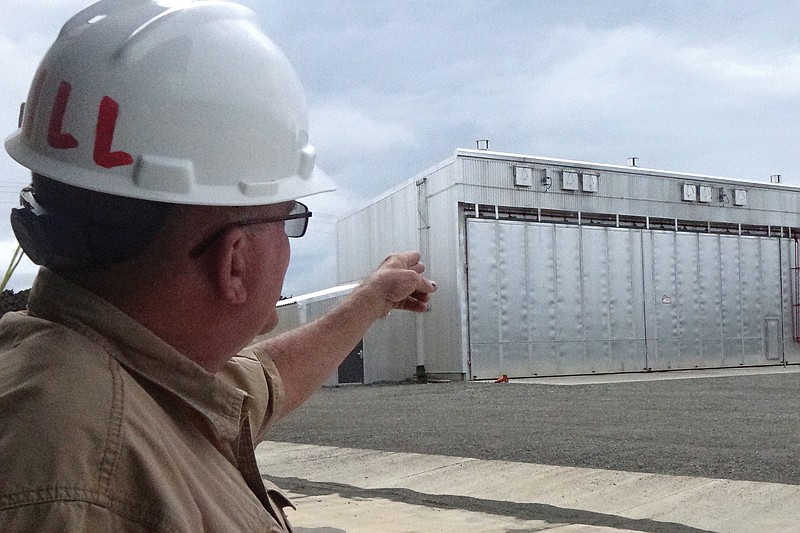With a new, multimillion-dollar expansion, Cass County's Ward Timber Co., is getting into the pine lumber market, said owner Bill Ward.
"A new expansion of facilities with dry kiln, storage building and automated stacking system is enabling us to get into pine lumber market because we can now dry our lumber," Ward said.
Already the largest hardwood cutting sawmill in Texas, according to the company's website, the company is making a long-term investment in pine cutting, the owner said.
"We sold all our hardwood product as green or wet. But you can't sell pine green. It has to be dry. So all these new facilities are in relation to our cutting pine lumber."
"Cutting the pine is something we think will be the future of our company because we are little concerned about the long-term viability of the hardwood industry due to not as much timber on the market in the past five or six years," Ward explained.
"We feel like there is plenty of pine timber in this area and we need to learn how to sawmill pine in order to be viable for next 20 to 3o years."
"We aren't unique. Other hardwood mills have converted to pine. A pretty good friend of ours over in Mississippi ran a hardwood sawmill. When they sold their mill recently, the investors came in and converted to pine. It's happening across the country."
Founded in 1978, Ward Timer LTD, is a second-generation, family-owned timber company that employs 120 people.
The company's past and experience will help it in the future, Ward said.
"It's not that our area pine tree is superior and the ability to cut board to the exact size the market wants is not that easy all the time. But our skill will be to do a good job milling and drying to correct dryness. That's where the difference between sawmills comes into view. This is where we feel we will be able to gain market advantage. That's where the difference will be."
Pine is not replacing hardwood, the owner said. The two have different markets altogether.
But there are a lot of uses for pine and more to be developed. For example, pine flooring for cabins is increasing in popularity, Ward said.
"They've come up with new treatments to make the pine floor a little harder and it won't dent or scratch as easily."
Ward said his company is trying to take basic steps to learn this market and that the company investment is one of "several million."
The company has long-run plans.
"For example, we've left room to build eight dry kilns and we have the two new ones right now. And if with our new storage building, dry kiln and automated stacking and strapping system, we get a good toe hold in the pine industry and expand further, we might run two shifts at the sawmill and that would add 30 people to the payroll."
Ward continued to express the company's concern for its local impact saying all but one of the builders for the new expansion project had been awarded to local contractors. Ward is joined with John B. Jones as owners of the company.

